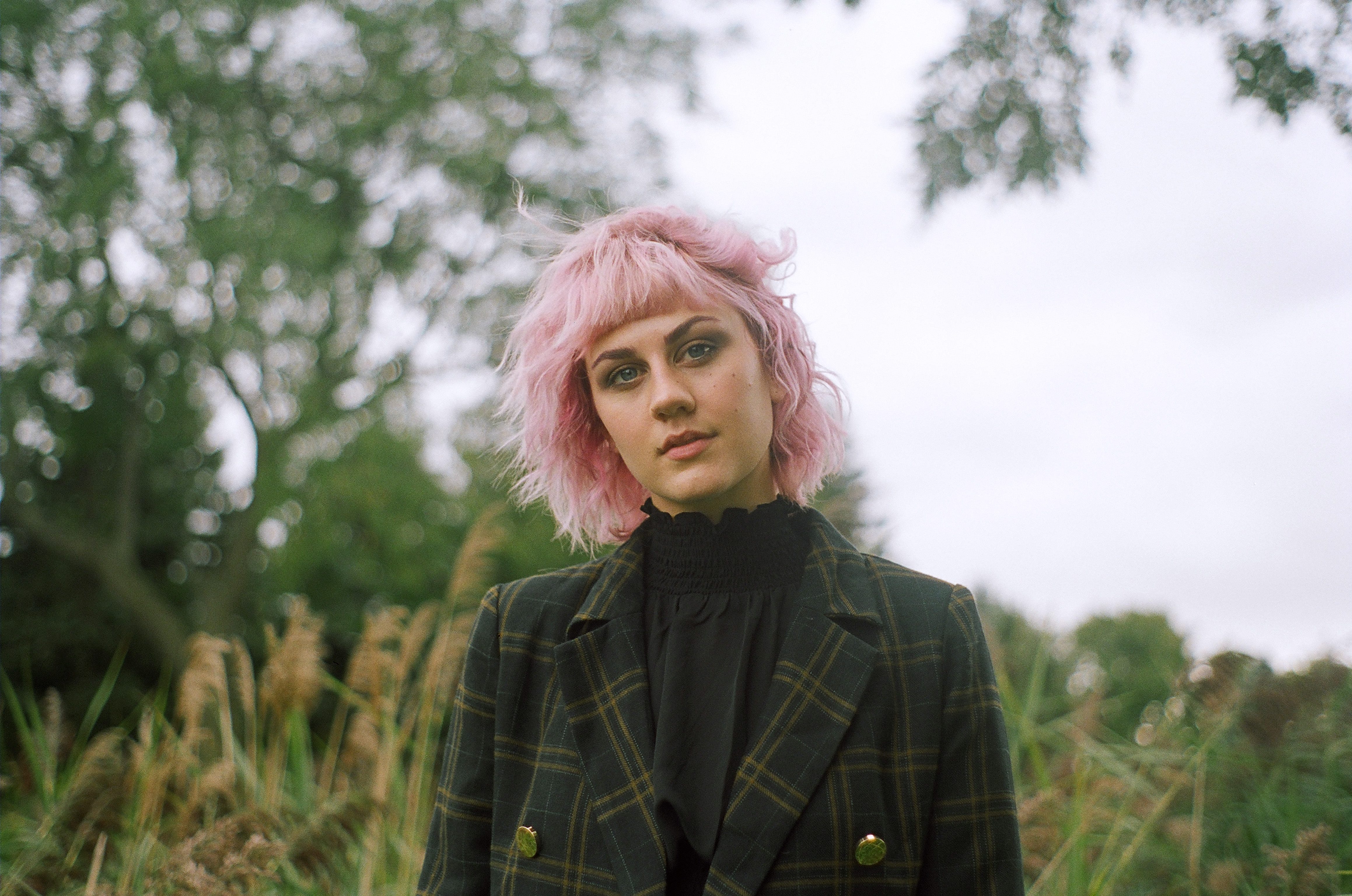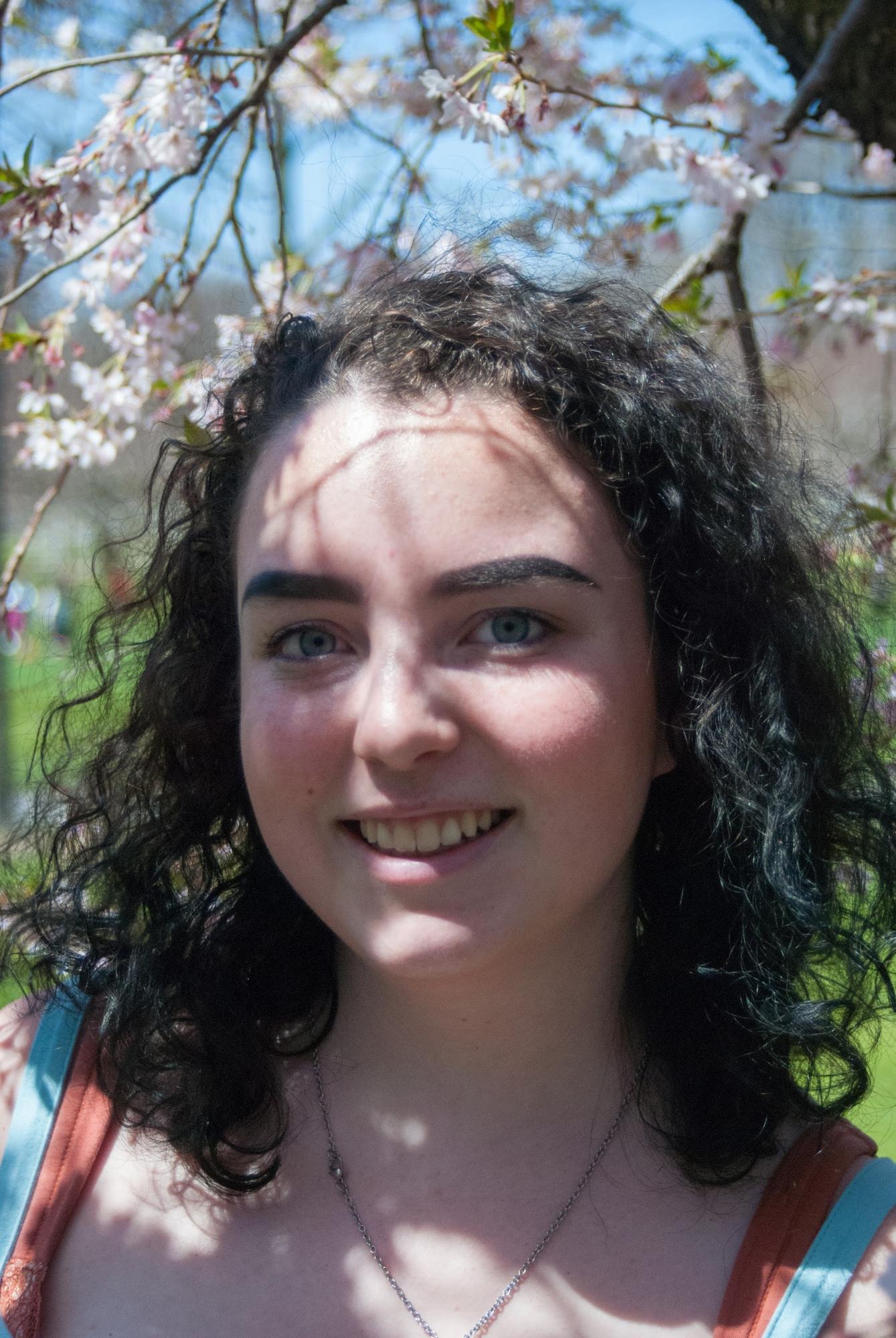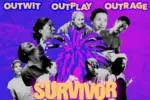Currently a McGill University student working toward her doctorate degree in ethics and feminist philosophy, Montreal-based YouTuber Celia Edell — “Ceedling” on the internet —has devoted her channel to providing viewers with accessible, thought-provoking videos that don’t require any prestigious academic knowledge to understand.
She covers topics such as feminism, mental health and anxiety, and strives to explore how they intersect. Additionally, Edell is breaking boundaries in the world of academia by pushing the limits of self-expression and appearances in the male-dominated community of philosophy.
In a sea of YouTube videos claiming to be educational or genuine when addressing such heavy topics, Edell’s material stands out as nothing more than what they’re advertised to be: simple, easy to follow, edit-less and from the heart. Between the mix of deep academic knowledge and authentic, personal experience, Edell has created a space online that is insightful, honest and for any and every viewer that stumbles upon it.
I recently had the opportunity to chat with Edell to discuss what inspires her videos, the ideas she feels passionate about and how she balances life on the internet with her educational and professional journey.
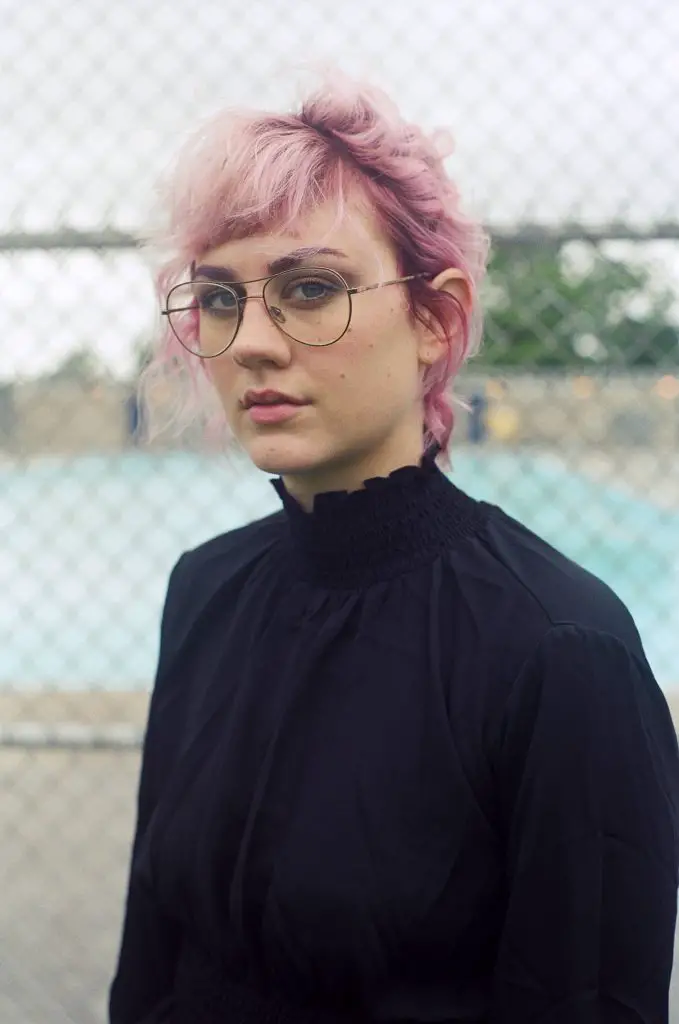
Lexi Anderson: I’ve noticed that feminism is probably your most popular area of discussion on your channel. Why is feminism so important to you?
Celia Edell: I think feminism, in a sort of simplistic idea, is about men and women and equality between the sexes, but I think in a more broader understanding, it includes all kinds of oppression: racial oppression, even things like fat-phobia or ableism — all of these different kinds of oppression that intersect with each other. I think talking about these ideas is really important.
I think that ignorance is a huge part of what perpetuates these kinds of oppressions — and not ignorance strictly in the sense of “We just didn’t know,” because there are lots of things that I don’t know — but there is also a kind of learned ignorance that is perpetuated through the way we’re taught in school and the way that things are presented to us in the media. If I can try to speak about what my experiences are and what I’ve learned about, to try to amplify the voices of those people who might not be listened to as much as me, I think that gives me some kind of purpose on the internet.
LA: Have you found that the different subjects in your videos overlap and connect in terms of how they affect each other?
CE: I’ve found an interesting thing, that when I talk about anxiety and bring in feminism, people get really upset. People have this idea of feminism that it should only cover things like the wage gap, double standards or cat-calling; in reality, feminism can speak for a lot of different areas of our lives. I enjoy looking at the way that those things overlap. For instance, one of my videos is about the pressure to have clear skin. I had really bad cystic acne for many years until I ended up taking Accutane for it. I experienced a lot of pressure to have clear skin, and I couldn’t live up to it for a very long time.
It got me thinking about this pressure and where this pressure comes from, and what feminism could do to try to address that, insofar as bringing attention to these unrealistic standards. I got a lot of backlash from people who were upset because they thought I was saying that acne is only a problem for women. But that’s not what I was saying. I think that feminism can help all genders, including men. I think the pressures might be different, which is the case for all beauty standards. But that isn’t to say that feminism isn’t there to break down all of those standards.
LA: Do you have any sort of target audience?
CE: When I first started making videos, I was a young undergrad. I was looking to talk to the people who were in my same age group with similar views, but maybe didn’t know the issues that I was talking about that well. Now, it has evolved in the sense that I’ve gotten older and the target audience has more or less stayed the same. I like to talk to people who are still coming into their own and are still figuring out where they stand on these issues.
When I was in university, I didn’t know where I stood on so many things, didn’t know feminism at all, so I was able to learn through the internet about these issues and make my own opinions. That’s all that I really want to be able to do, to put these views out there in an accessible way and in a way that isn’t too confusing or scary for people to be able to identify with. Hopefully that makes them want to do their own research and continue.
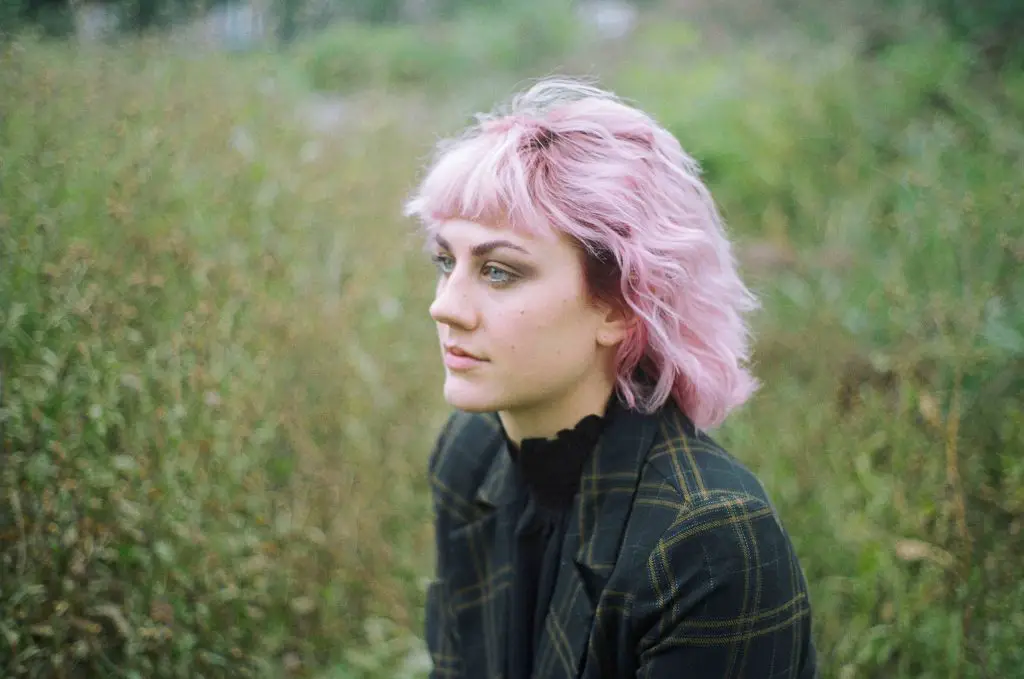
LA: You’re currently a doctorate student studying philosophy. Do you think you take a philosophical approach to the topics you discuss?
CE: I definitely think that I naturally take a philosophical approach, in that philosophy is about questioning things and really deconstructing a statement or an argument and making sure all the parts add up. I think that I have taken that approach with the issues I discuss. I like to break them down and really understand if they logically make sense to me. A lot of the time they don’t, and that’s what the video will be addressing.
I’m also really interested in ethics, that’s generally the kind of philosophy that I do. I have one quite controversial video about whether we have a moral requirement to be vegetarian or vegan. The point of that video, and a lot of videos like it that I’ve done, is not to say my stance on something. It’s to ask a question and allow a philosophical lens to question what we’re thinking about. There’s more of a grey area, and what philosophy has taught me is to look closely at that grey area, and not to be afraid of not having all the answers.
LA: Have viewer comments ever made you question your stance on a particular issue?
CE: I have had some comments that didn’t make me question my stance, but have made me question the way that I said something or the tone that I used. If I said something with a lot of confidence and then someone said something that made me go, “Oh, maybe I didn’t think about all the sides of this,” or someone who is saying, “Listen, you can’t speak for me on this issue, I have experience with it and your acting like your experience is the only one,” I have to take a step back and think, “Okay, I was speaking too broadly and maybe there are more nuances to this that I considered before.”
LA: There’s also a great deal of beauty-centric videos on your channel and you’re known for your ever-changing hair colors. When did you first start getting interested in style and beauty?
CE: That was mostly at the beginning of university. In high school I was a lot more concerned with fitting in. I wanted to look like the people that I was surrounded by, so that meant being blonde and tan and looking like my peers, which is fine. But when I got into university I started to feel like, “Okay, I’m one person in a class of 600 people.” I started to realize that I was a lot more anonymous there.
I also started using Tumblr and the internet more, and it gave me a lot more confidence to explore different kinds of style that I wouldn’t try when I was a little younger. I think I’ve started to settle into what feels comfortable to me now, but I think it was all part of trying to express myself, especially at a university that was very preppy and athletic based. I never really felt fully like one of them, so I started to embrace that and experiment more with my style. It was a pure way to express myself in my hometown.
LA: So would you say that self-expression is something really important to you?
CE: Yeah, I think it is. In a doctorate program, you’re really being professionalized to be able to get a job by the end of it. One thing that I’ve learned over the past couple of years in this program is that, for women, it’s really not accepted or encouraged to care about the way you look, and I had never noticed this. It’s becoming more apparent to me now that none of the philosophy professors that I’ve had that are women have ever worn makeup. None of them have ever presented themselves in a way that is drawing attention to themselves or their physical body, face or whatever.
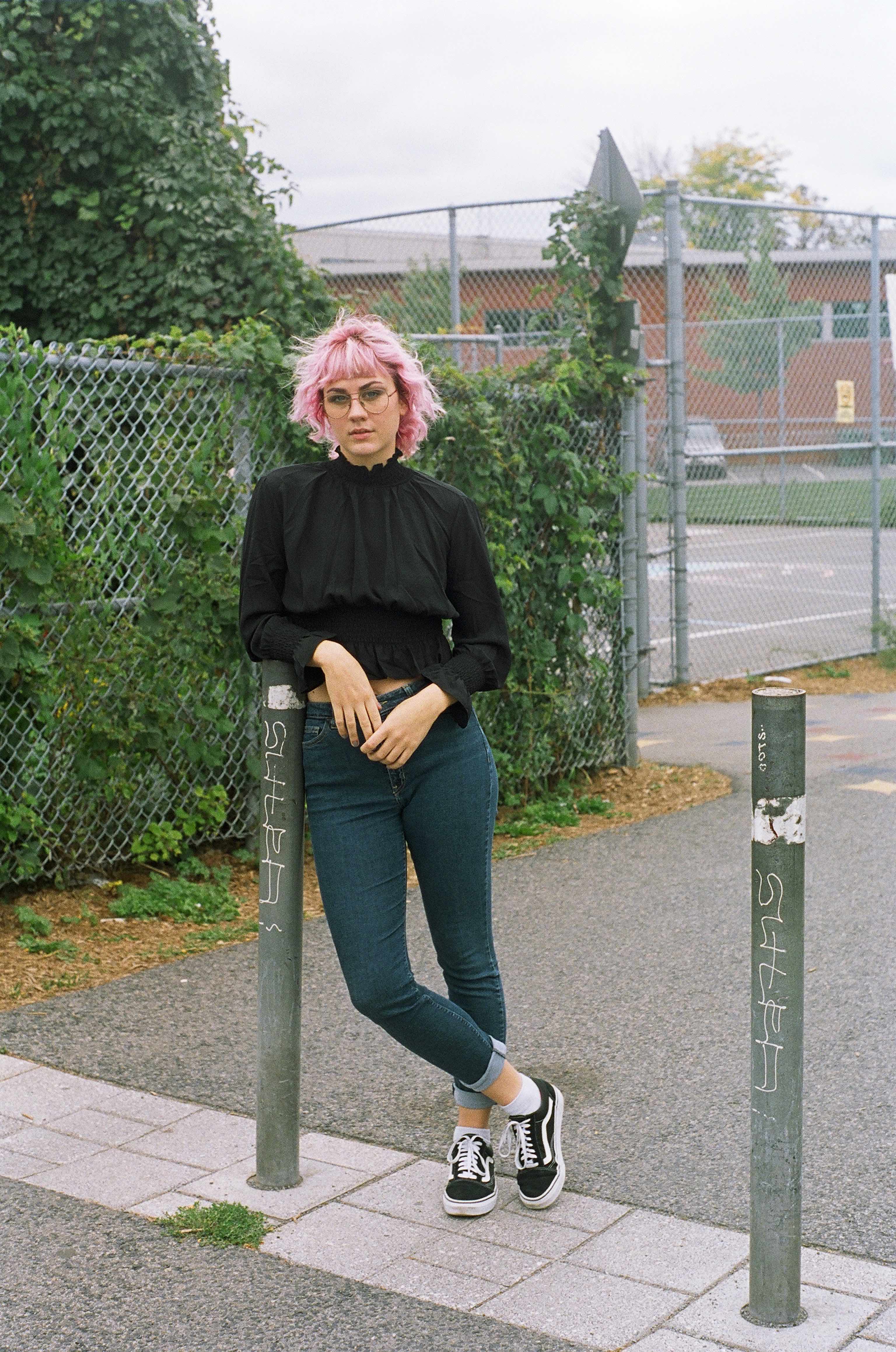
That, to me, is something that I am now coming up against. I’m starting to feel this pressure to “tone it down,” and to look more serious. That’s something that I’m struggling with because self-expression is so important to me and I don’t want to give it up, but I also don’t want to ostracize myself. Now it’s about finding this balance of, “Yeah I can still dye my hair colors and I can still wear makeup if I want to, and I can still be taken seriously.” It should be about my work and how I teach my students and not how I look.
I like to think that embracing that will be a positive influence on young women who are taking their first philosophy class, and they see me with turquoise hair, wearing a pink dress. You don’t really see that expression or that kind of femininity in philosophy because it’s so male dominated and cerebral. If I can communicate without words to one undergraduate girl that you can keep experimenting with the way you look, you can keep wearing what you like to wear and keep going in academia if you want to, that will be really meaningful for me.
LA: What would you say to someone who feels strongly about social issues but doesn’t really know how to get their thoughts out there?
CE: As a woman in philosophy, my opinion is not the opinion that is held in the most regard, but I’ve had to push past that and say, “No, I actually have something to say on this matter.” It takes a lot of learning to trust yourself, and honestly it takes a lot of faking it until you believe it, and sometimes still faking it.
On the other hand, I think that if you want to be able to talk on these issues, it’s important that you don’t just talk out of nowhere. You should read and do your research. You obviously can’t be expected to know everything about something before you speak on it, but reading about it or listening to other people who might have experience in that area is a really good way to learn the different sides of an issue. Once you have a good grasp on what the sides are, you can decide where you stand.
LA: Do you have any goals for your channel in the future?
CE: My goal is to continue to create accessible content about issues that I think are important and not to lose myself in the language and the lifestyle of academia. It is very much in its own bubble, where people talk only in this academic language that’s really hard to understand, and they talk only to each other. As I advance in my studies I want to keep sharing the ideas that I’m thinking about in academic life, but break it down in a way so that you don’t need a philosophy degree to understand.


